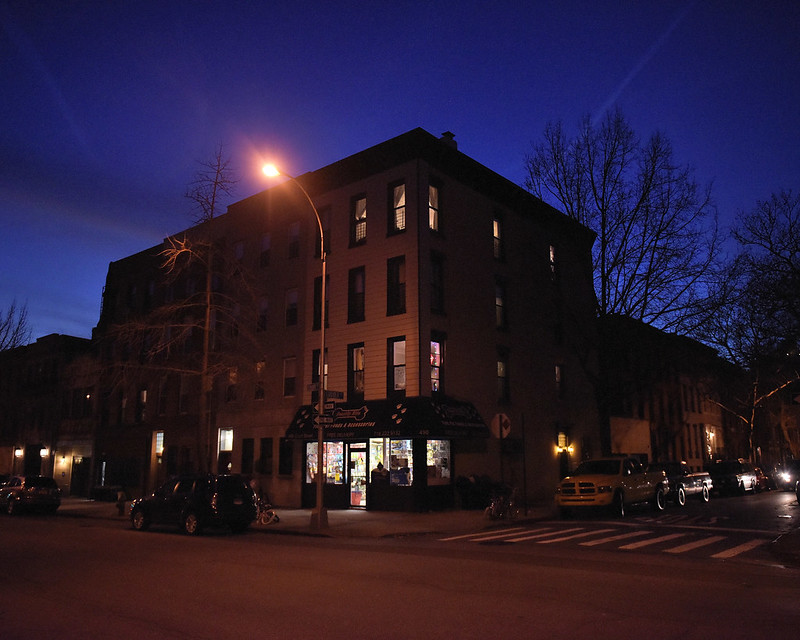They won’t put a stoplight on that corner till somebody dies, my father
would say. Somebody has to die. And my mother would always repeat:
Somebody has to die. One morning, I saw a boy from school facedown
in the street, there on the corner where somebody had to die. I saw
the blood streaming from his head, turning the black asphalt blacker.
He heard the bells from the ice cream truck and ran across the street,
somebody in the crowd said. The guy in the car never saw him.
And somebody in the crowd said: Yeah. The guy never saw him.
Later, I saw the boy in my gym class, standing in the corner of the gym.
Maybe he was a ghost, haunting the gym as I would sometimes haunt
the gym, standing in the corner, or maybe he wasn’t dead at all. They
never put the stoplight there, at the corner where somebody had to die,
where the guy in the car never saw him, where the boy heard the bells.
Image: “Brooklyn Street Scene — Street Corner at Night,” by Steven Pisano, licensed under CC 2.0.

Martín Espada was born in Brooklyn, New York in 1957. He has published more than twenty books as a poet, editor, essayist and translator. His forthcoming book of poems from Norton is called Floaters. Other books of poems include Vivas to Those Who Have Failed (2016), The Trouble Ball (2011), The Republic of Poetry (2006), Alabanza (2003), A Mayan Astronomer in Hell’s Kitchen (2000), Imagine the Angels of Bread (1996), City of Coughing and Dead Radiators (1993) and Rebellion is the Circle of a Lover’s Hands (1990). He is the editor of What Saves Us: Poems of Empathy and Outrage in the Age of Trump (2019). His many honors include the Ruth Lilly Poetry Prize, the Shelley Memorial Award, the Robert Creeley Award, the National Hispanic Cultural Center Literary Award, an American Book Award, an Academy of American Poets Fellowship, the PEN/Revson Fellowship and a Guggenheim Fellowship. The Republic of Poetry was a finalist for the Pulitzer Prize. His book of essays and poems, Zapata’s Disciple (1998), was banned in Tucson as part of the Mexican-American Studies Program outlawed by the state of Arizona, and reissued by Northwestern University Press. A former tenant lawyer, Espada is a professor of English at the University of Massachusetts-Amherst.
Latest posts by Martín Espada
(see all)


